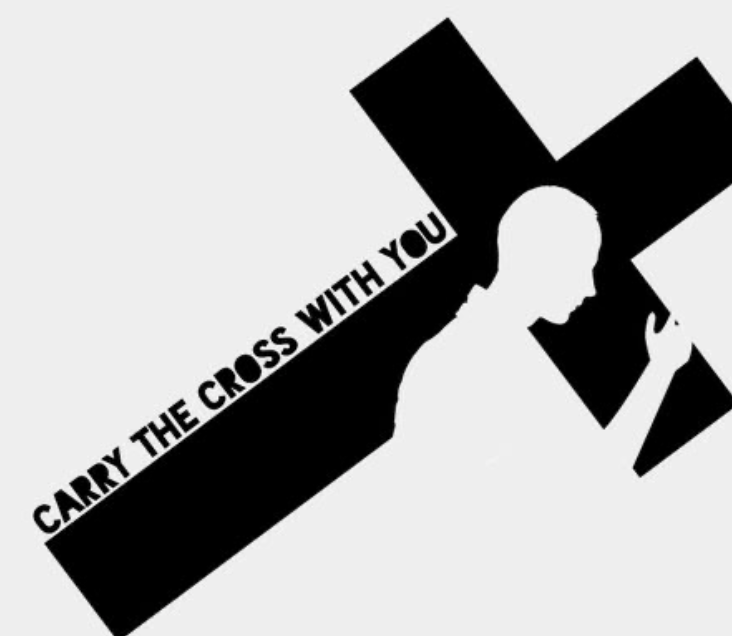
This week’s New Testament reading focusses upon Matthew 16:21-28. It contains that phrase ‘take up thy cross‘ dependent whether you like the old English versions. What might ‘taking up the cross’ mean today?
Where are we in this Gospel?
This passage comes between last week’s passage on ‘Who do you say that I am?‘ and the ‘Transfiguration‘. The lectionary jumps over that last passage next week. If Matthew is written to a Jewish audience we have arrived at the start of the fourth of the five (akin to the number of books within the Torah) sections. Here, Jesus speaks of the commission involving his death by the Jerusalem ruling elite..and importantly to his resurrection.
Pivotal Moment
We have arrived at a great pivotal moment. In verse 21 it starts “From that point began” and Jesus then starts to direct his attention more to the disciples than the crowds. The parallel passage in Mark’s Gospel also comes in Chapter 8, just as the disciples have got that “aha!” moment and realised..possibly.. what Jesus has been doing.
Recall that last week Peter, the rock – more of which later – has stated that Jesus is the Messiah. This word has huge political overtones. The Jews would struggle with the ‘Son of God’, as surely no human could consider themselves to be born of Deity? This would be more in tune with Roman understanding. Here, Peter then denies saying that this “must never happen to you” (NRSV, verse 22).
This denial may have stemmed from the Jewish understanding of crucifixion. This was a degrading and shameful “form of execution reserved for those who challenged the imperial status quo” [1]. Jesus speaks of ‘taking up his cross’ but also of ‘on the third day be raised‘ (Matthew 16:21). We think of a ‘sacrificial atonement‘ as a reason for all of this. Resurrection emerges in the 2nd C BCE following the dictatorial leadership of Antiochus Epiphanes IV . It’s where Daniel 12:1-3 speaks of resurrection, so scholars suggest. It’s a lot to take in, even for Peter.
Is it really a rebuke?
Jesus, in this first of his passion predictions, then anecdotally rebukes Peter with the words “Get behind me Satan“. I use the word anecdotally because generally most English translations use that form of words. However, in the Greek version, it would read “opios μου” or ‘follow me‘ – just as it does in Matthew 4:19. This response from Jesus is also not recorded in the corresponding passage in Luke’s Gospel.
Could it have been a call to deeper discipleship?
Peter, once the rock, the foundation upon which the new ‘church’ would be built, is now the stumbling block. What a transformation in such a few verses!
Isolation or Confrontation?
Jesus speaks of gaining your whole life and forfeiting your life. This is seemingly often taken to denote a call to self-denial. We should possibly not be part of the world, living in isolation to grow closer to God. But from the following passage about the Transfiguration, Jesus doesn’t remain up on the mountain (Matthew 17:9-13) but returns, still confirming that he is to die.
Jesus is never one to stay below the ‘radar’. Jesus confronts, subverts on occasions, the status quo. Here again, conflicting with the disciple’s prior assumptions, he offers a proclamation that few were expecting. Even his death was more political than religious for the cross was utilised by the Romans for executions reserved for political enemies. Perhaps being counter-cultural, even subversive, answers what does ‘taking up the cross’ mean today?

And for us?
There’s that question “What does taking up the cross mean today?”
One Lutheran site suggests: “We know that He doesn’t promise eternal life because of what we do, but rather what we do – how we willingly take up our cross to follow Him – demonstrates the faith in our hearts and our loving response for all that He has done for us. It is this faith which He promises to reward with the gift of eternal life.”
It is in the understanding of discipleship, living out our faith, where this taking up the cross, becomes real:
– today, with churches struggling financially, what might we do?;
– with people in our communities struggling to cope, what might we do?;
– with refugees being swept ashore, dead, in France, will we stand up and declare support for refugees/migrants?; and
– will prayer become a verb as well as words?
We must not become a stumbling block for our own faith or the faith of others: let people know of God’s radical love.
What are your thoughts?
[1] Aymer, Margaret., Kittredge, Cynthia Briggs., Sánchez, David A., eds., The New Testament Fortress Commentary on the Bible, (Minneapolis : Fortress Press, 2014), pp. 154-155
Cover Photo Credit : http://www.c3christianchurch.com/sunday-morning-sermons/

Really drawn in by the question “will prayer become a verb as well as words?” Not entirely sure why yet! Thanks once again Bob!